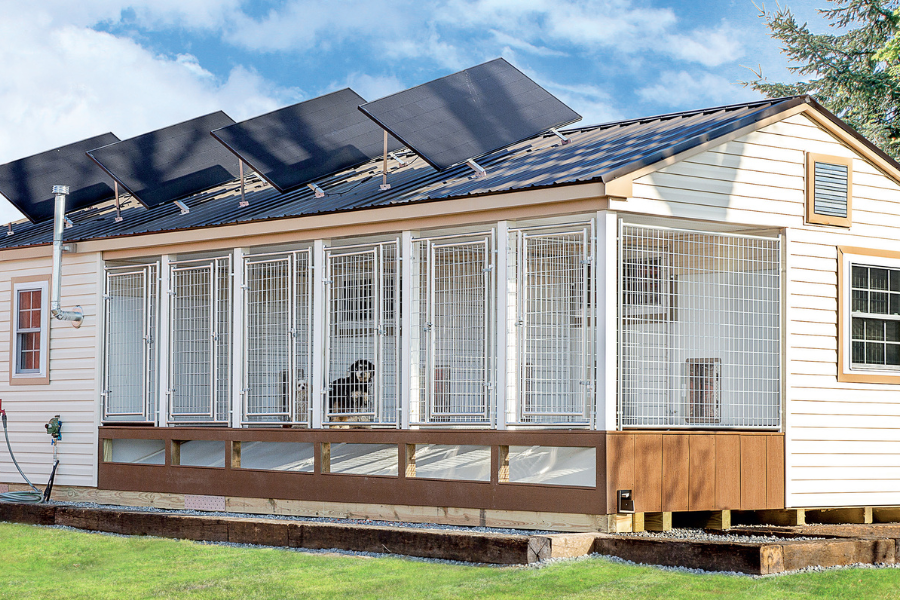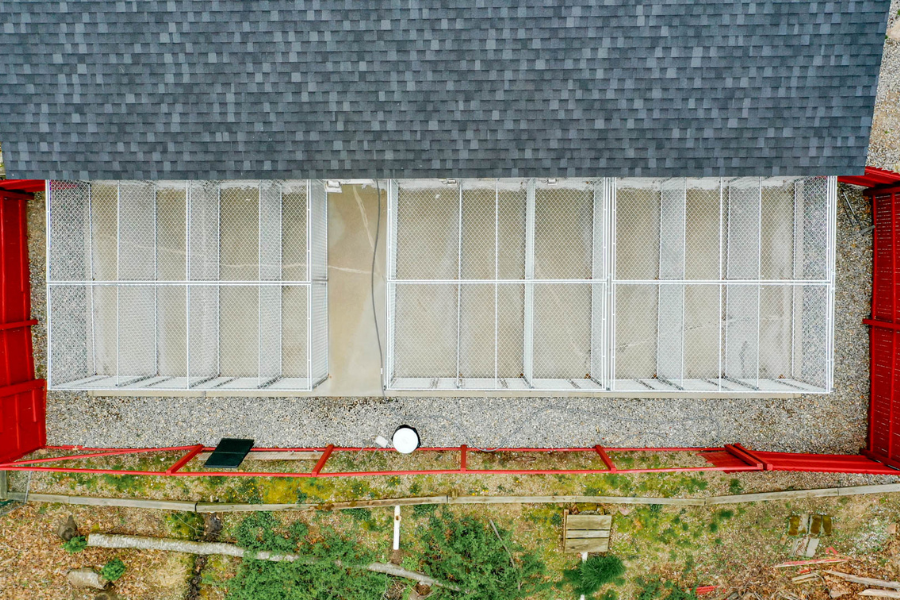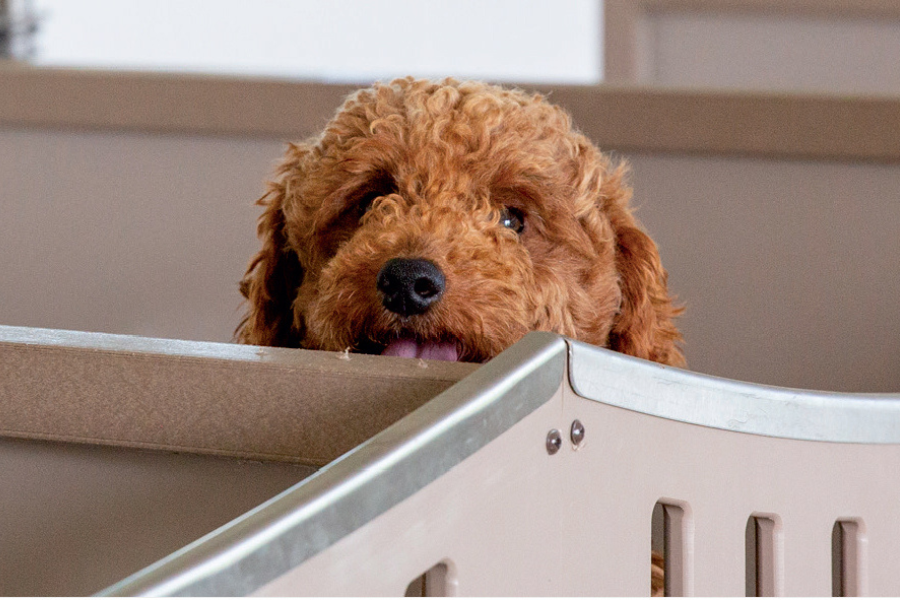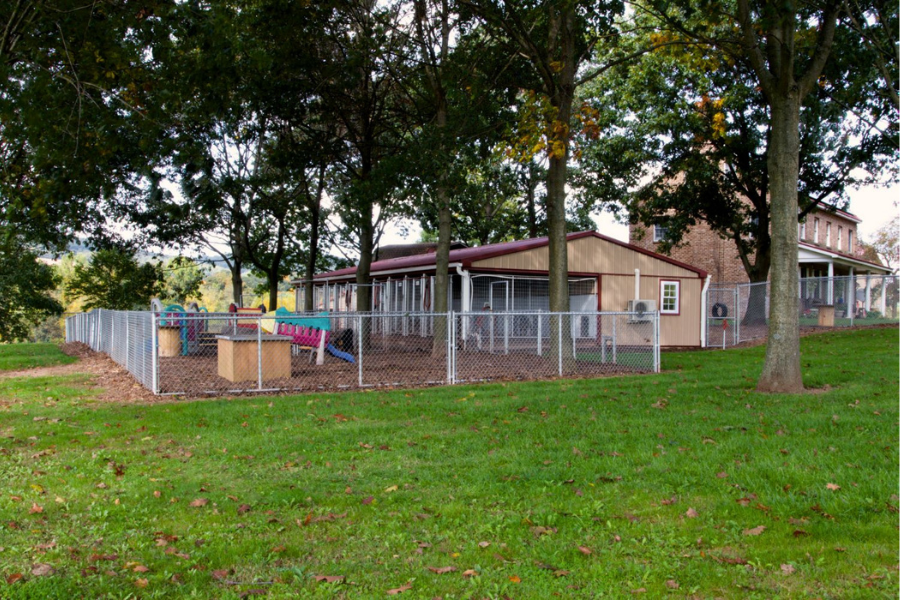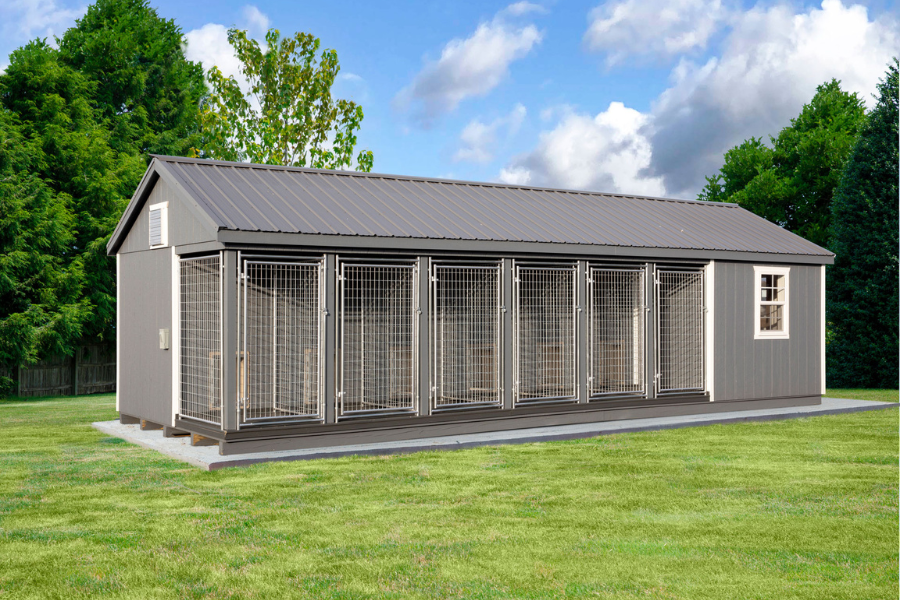Vermont isn’t as straightforward as some other states we’ve covered when it comes to commercial dog kennel laws. In fact, there are no statewide regulations governing kennels. Instead, the rules vary depending on the type of business you plan to start, the services you offer, and where in the state you’re located.
This guide brings together everything you need to navigate the legal landscape, including licensing, business structure, animal care standards, and the local officials you should contact for area-specific information.
Let’s dive in.
Do I Need A Dog Kennel License in Vermont?
In Vermont, whether you need a dog kennel license depends on the type and scale of your operation. Kennels that breed or sell dogs often fall under state “pet dealer” regulations, which require a permit and compliance with specific care standards. Boarding or daycare facilities may not always need a state kennel license, but they are still subject to Vermont’s animal welfare rules and inspections. Additionally, local towns and cities can set their own kennel permit requirements or zoning restrictions, so it’s important to check both state guidelines and municipal ordinances before starting a kennel business.
Do I Need An LLC For A Dog Kennel?
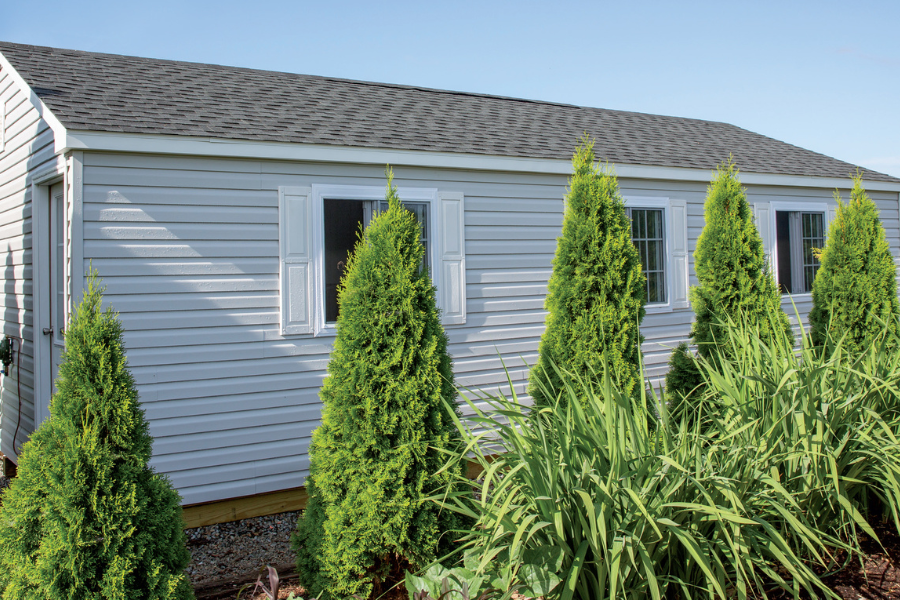
You are not legally required to set up your dog kennel business as an LLC. However, this business structure is often recommended as it provides extra protection against risks. This is especially important for businesses responsible for the safety of people or animals, such as a dog boarding business.
An LLC also provides tax benefits, makes permitting and other business setup items easier, and increases your credibility as a business. To form an LLC in Vermont, file online with the Vermont Secretary of State.
How Many Dogs Can You Own in Vermont?
Under Vermont’s Rule 300 (Animal Welfare Regulations), there is a limit on how many adult dogs may be housed together in the same “primary enclosure”:
- “Not more than 12 adult nonconditioned dogs shall be housed in the same primary enclosure.”
- “Nonconditioned” generally means dogs that are not accustomed to confinement in that enclosure (vs dogs that have been conditioned over time).
However, that does not necessarily mean there is a statewide cap on how many dogs a person may own in total. The rule governs how densely dogs may be kept under certain kennel or enclosure conditions, rather than placing a flat ownership limit for all dog owners.
Also, municipalities (towns or villages) may impose their own limits under their local ordinances, for instance, defining a “private kennel” as five or more adult dogs over six months of age in a village’s private kennel license rule.
How Much Is A Kennel License In Vermont?
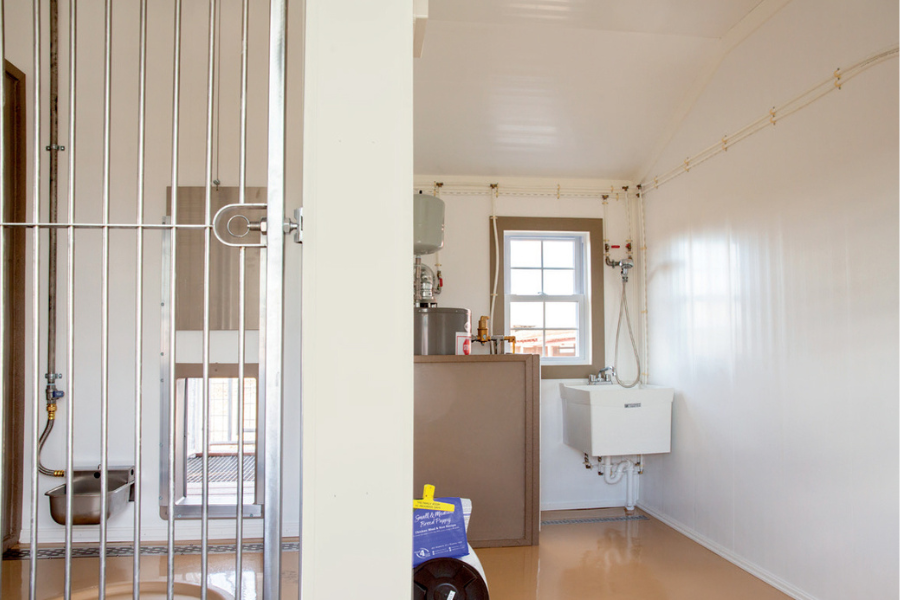
The cost of a “dog kennel license” in Vermont depends heavily on what kind of permit or license you need (pet dealer, breeder, kennel permit, etc.) and what your municipality charges. However, here are some concrete examples from Vermont law and local towns:
In broader state summaries, you’ll see that breeding (or special) licenses and pet dealer permits are listed in schedules (e.g. $30.00 for a breeding license up to 10 dogs, $3.00 per additional dog) and $25.00 for a pet dealer permit.
Under Vermont statute, a pet dealer permit costs $25.00 and is issued by the municipal clerk.
In Stowe, Vermont, the fee for a kennel permit (to operate a kennel) is $10.00. Also, a “special license” for keeping non-neutered dogs for breeding (up to 10 dogs) is $33.00, with additional dogs costing $3 each.
Dog Kennel Regulations By Industry in Vermont
In Vermont, dog kennel regulations vary depending on the type of operation, whether it’s boarding, breeding, daycare, or a retail pet dealer. All kennels must comply with the state’s Animal Welfare Regulations (Rule 300), which set standards for housing, sanitation, recordkeeping, inspections, and animal care. Breeders or kennels that sell animals must also follow additional rules under the pet dealer laws, including permit requirements and consumer-protection disclosures. Local municipalities may layer on their own rules, zoning restrictions, kennel permits, and licensing fees that differ by industry segment.
Dog Boarding Regulations in Vermont
Running a dog boarding facility in Vermont means following both state animal welfare rules and local ordinances. These regulations are designed to ensure that dogs are housed safely, cared for properly, and kept in clean, healthy environments. Below are some of the key requirements that boarding kennels must meet:
- Facilities must be structurally sound, well-maintained, and protect dogs from injury and pests.
- Local rules: towns may require kennel permits, zoning approval, or noise control compliance.
- Indoor housing requires heat, ventilation, lighting, and cleanable surfaces.
- Outdoor runs/shelters must provide shade, weather protection, and warmth in cold weather.
- Enclosures must be clean, safe, and allow dogs to stand, sit, turn, and access food/water.
- Feeding & watering: wholesome food daily; water available at all times (or at least twice a day).
- Sanitation: waste and debris are removed promptly to prevent odor, disease, and vermin.
- Veterinary care must be arranged for sick or injured animals.
- Records & inspections: boarding kennels must keep animal records and allow inspections.
Dog Vet Regulations in Vermont
In Vermont, veterinarians are licensed and regulated by the Board of Veterinary Medicine under Title 26 V.S.A. They must maintain a valid Veterinarian–Client–Patient Relationship (VCPR) to prescribe or treat, follow professional standards of care, and provide emergency or follow-up care when needed. Regulations also cover facility inspections, recordkeeping, and the handling of prescriptions and controlled substances. While vet techs aren’t state-licensed, voluntary certification is available. Overall, these rules ensure proper medical care, accountability, and animal welfare across veterinary practices in Vermont. To become a licensed veterinarian in Vermont, you must graduate from a veterinary school accredited by the American Veterinary Medical Association (AVMA) and submit a licensing application with a $100 fee. The license is valid for two years and must be renewed upon expiration.
Dog Grooming Regulations in Vermont
Dog groomers in Vermont are not required to hold a specific state license or certification to operate, but they must still follow general animal welfare standards. Facilities and individuals providing grooming services are expected to comply with Vermont’s Animal Welfare Regulations (Rule 300), which cover safe housing, sanitation, and humane handling, as well as state cruelty laws that prohibit neglect or mistreatment. Local municipalities may also impose business licensing, zoning, or operating permits, depending on where the grooming business is located. While not mandatory, many groomers choose to pursue voluntary certification through national organizations to demonstrate professionalism and ensure high standards of care. Dog shelters must be kept clean and must provide proper nutrition, access to clean water, and necessary veterinary care. You can also complete training and certification courses from the National Dog Groomers Association of America (NDGAA) to provide your clients with proof of your abilities.
Dog Shelter Regulations in Vermont
In Vermont, dog shelters must follow the state’s Animal Welfare Regulations (Rule 300), which set standards for housing, care, sanitation, recordkeeping, and inspections. Shelters are required to keep intake information for each animal, but are generally exempt from pet dealer laws. They also receive liability protection when assisting in cruelty cases if acting in good faith. Like all facilities, shelters must meet humane treatment rules, ensuring dogs have proper food, water, shelter, and space. To operate an animal shelter in Vermont, you must register with the Vermont Department of Agriculture, Food, and Markets. You are also required to maintain clear records of all animals in your care and ensure they are housed appropriately. Dog shelters must be kept clean and must provide proper nutrition, access to clean water, and necessary veterinary care.
Dog Trainer Regulations in Vermont
Vermont requires no formal training or licensure for someone interested in becoming a dog trainer, meaning anyone could realistically become one. However, there are organizations such as the CATCH Canine Trainers Academy that do offer a dog training school that comes complete with a certification. Dog trainers must still comply with general animal welfare laws and avoid any practices that could be considered cruelty or neglect. Training facilities or programs that house dogs may also need to follow Rule 300 standards, and local towns can impose business licenses, zoning restrictions, or noise rules that affect how trainers operate.
Dog Breeder Regulations in Vermont
Dog breeders in Vermont who sell animals are regulated as pet dealers if they sell or exchange dogs from three or more litters in a year, requiring them to obtain a municipal pet dealer permit. Breeders must comply with the state’s Animal Welfare Regulations (Rule 300) covering housing, care, and inspections, as well as Rule 308, which requires disclosures about each animal’s health and history at the time of sale. They are also subject to inspections, recordkeeping rules, and humane care standards, while local towns may add their own kennel permits, zoning restrictions, or fees.
Breeders must obtain a breeding or special license. All animals must be kept in a proper enclosure, and a current rabies vaccination is required for all dogs in your care. Each breeding license issued is subject to a $1.00 fee for the State Rabies Control Program.
K-9 Dog Facilities in Vermont
K-9 facilities in Vermont are generally subject to the same Animal Welfare (Rule 300) requirements as other dog facilities, covering suitable housing, sanitation, ventilation, veterinary care, and inspection rights. They must also comply with Vermont’s general animal cruelty and sheltering statutes, which mandate that animals housed outdoors receive adequate shelter, and that all dogs have sufficient space, food, water, and protection from the elements.
In addition, police canines in Vermont must be trained and certified under standards recognized by the Vermont Criminal Justice Council (VCJC). The required components of certification include:
- Initial certification
- Annual recertification
- Ongoing in-service training
- Comprehensive documentation and record-keeping
Dog Kennel Laws By County in Vermont
Dog kennel rules in Vermont differ by county and may involve limits on the number of dogs, kennel size, placement, and additional local guidelines. For the most reliable and current information, reach out to your county’s planning department using the link below.
| Addison County | Zoning |
| Bennington County | Zoning Regulations & Ordinances |
| Caledonia County | Zoning Department |
| Chittenden County | Zoning |
| Essex County | Essex County |
| Franklin County | Zoning Department |
| Grand Isle County | Planning and Zoning |
| Lamoille County | Planning |
| Orange County | Ordinances and Policies |
| Orleans County | Zoning & Building Permits |
| Rutland County | Planning & Zoning Department |
| Washington County | Currently, no website is available. Read below to find information about your city. |
| Windham County | Town Planning |
| Windsor County | Zoning |
Dog Kennel Laws By City in Vermont
Vermont kennel regulations differ by city and often depend on factors like the number of dogs allowed, the size of the facility, and other local rules. For the most accurate and updated details, contact your city’s planning or zoning department using the chart below.
| Bennington | Planning & Permitting Department |
| Brattleboro | Dog Licensing Planning Services |
| Burlington | Permitting & Inspection |
| Colchester | Planning & Zoning Department |
| Essex | Animal Issues & Regulations |
| Essex Junction | Community Development |
| Hartford | Planning and Zoning |
| Manchester | Planning & Zoning Department |
| Middlebury | Planning & Zoning Department |
| Milton | Planning & Zoning Department |
| Montpelier | Planning & Community Development Department |
| Rutland | Planning & Zoning Department |
| South Burlington | City Permits, Licenses & Registrations |
| Springfield | Planning & Zoning Department |
| Williston | Planning & Zoning |
Next Step: Build A Kennel That Meets Every Requirement
Now that you understand the legal requirements for operating a dog kennel in Vermont, it’s time to turn your attention to your facility. As covered in this guide, a compliant, well-run kennel should include:
- Climate control
- Proper ventilation
- Shelter from the elements
- Fresh water access
- Surfaces that are easy to clean and sanitize
These features are essential not just for compliance, but also for the health and comfort of the animals in your care.
Simplify Your Setup With The Dog Kennel Collection
That can seem like a lot to find all in one kennel, but not with the Dog Kennel Collection. Our kennels come equipped with all the essential features you need to get started, such as:
- Feeding and watering systems built in
- Integrated heating, cooling, and ventilation
- Durable, easy-to-clean materials
- Flexible layouts for boarding, grooming, or training
Want something unique? We offer custom-built kennels tailored to your business model and property layout.
Don’t Forget The Essentials
Need specific supplies for your business? We’ve partnered with Backyard Pet Supplies to provide you with the tools you need to run your business efficiently, including:
- Grooming equipment
- Kennel hardware and accessories
- Dog-safe playground structures
- Whelping Supplies
- Cleaning supplies and more
This makes outfitting your facility fast, easy, and reliable—all in one place.
Time To Start Your Dog Kennel Business!
No matter where you’re located in Vermont or what type of dog care services you offer, we’re here to help you launch with confidence.
Contact us or request a quote today to get started building the perfect kennel for your business.

